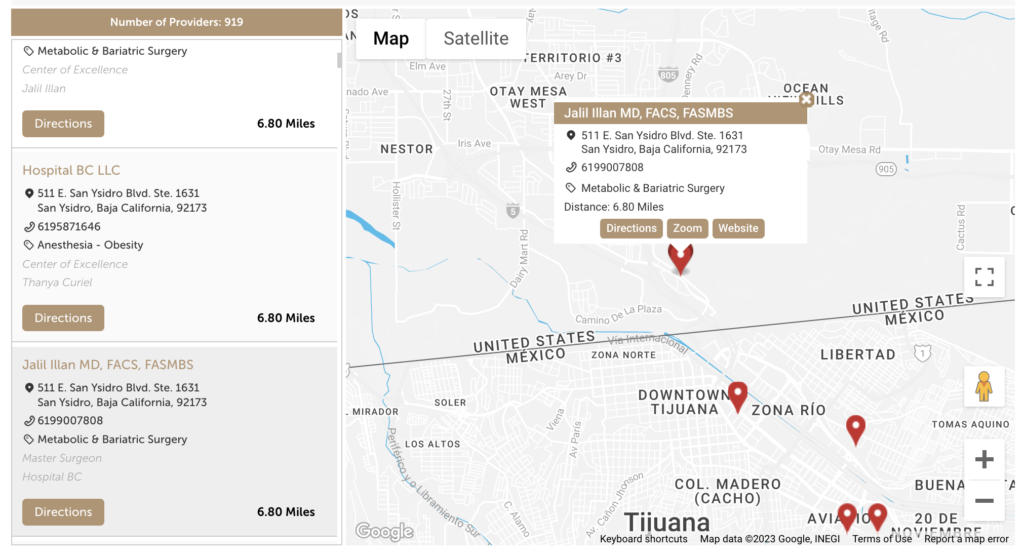Bariatric vitamins are essential vitamins to keep our body nourished and healthy Each vitamin serves a particular purpose and leaves a powerful impact on the human body. These bariatric vitamins are available in the form of capsules, pills, and gummies.
This is why it is vital to have bariatric vitamins after every surgery, specifically gastric sleeve surgery, which is for weight loss. Gastric sleeve surgery alters the function of the gastrointestinal system in the human body. This surgery also impacts the levels of minerals and vitamins in the body, which is why not taking vitamins after gastric sleeve surgery can cause various kinds of deficiencies.
The symptoms of vitamin deficiency after gastric sleeve surgery are many and can be caught at an early stage. They should not be ignored at any cost, as prolonged gastric sleeve vitamin deficiency symptoms can lead to permanent nerve damage and memory loss.
Vitamin Deficiency – Symptoms
A diet lacking in vitamins can result in crankiness and lethargy all the time. If you don’t follow a vitamin-sufficient diet, you may be experiencing the following symptoms:
• Brain fog
• Blurred vision
• Brittle and weak bones
• Hair loss
• Fatigue
• Muscle loss
• Paleness
• Nerve damage
• Dry and cracked skin
• Lightheadedness
If you have undergone surgery and thinking about what vitamins should you take after gastric sleeve surgery, then you should start taking the vitamins mentioned below to heal your body while losing weight. However, your stomach will be sensitive to digest pills for a while. Therefore, you can take vitamin gummies for the initial few months.
Disadvantages of Not Taking Bariatric Vitamins Post-Surgery
As we discussed the symptoms that can occur due to a deficiency of vitamins, it is important to understand what each vitamin is essential for. Every vitamin fulfills a deficiency in your body and has specific advantages. Here are the downsides of not consuming different vitamins after your gastric sleeve surgery.
Zinc Deficiency
Zinc in your body acts as an excellent booster for your immune system. It is necessary to intake 15mg of zinc in your daily routine to prevent a weakened immune system and avoid contracting diseases and illnesses.
If you don’t regularize your daily zinc intake, you can contract illnesses like skin rashes, slow wound healing, skin ulcers, common cold, diarrhea, and vision problems due to a weak immune system. Foods rich in zinc are legumes, seeds, shellfish, meat, nuts, eggs, dairy, and whole grains.
Thiamine Deficiency
Thiamine deficiency results in causing vomiting and nausea, as it normally occurs after gastric bypass or gastric sleeve surgery. Adequate intake of Thiamine/Vitamin B1 helps fight and relieve these issues.
Thiamine deficiency can also result in low appetite, blurry vision, tingling legs and arms, fatigue, brain fog, irritability, nerve damage, vomiting, and nausea. Because nausea is a common concern after gastric sleeve surgery, you should consume Thiamine/Vitamin B1 to avoid dehydration and weakness. Foods rich in Thiamine include whole grains, salmon, and legumes.
Calcium Deficiency
A low amount of calcium in your body results in weaker bones and reduced bone mass. It also increases the risk of osteoporosis. The calcium deficiency can leave similar effects on males and females and is common when the body doesn’t create newer bones quickly enough after losing old bones.
Calcium deficiency can significantly affect your bones, resulting in brain fog, extreme fatigue, lack of focus, sluggishness, lack of energy, abnormal heart rhythm, and numbness and tingling in fingers.
Apart from dairy products, other products are also rich in calcium, such as salmon, sardines, seeds, tofu, leafy greens, lentils, and beans. Dairy products rich in calcium include milk, cheese, and yogurt. If intake of all these products is difficult, then calcium supplements are the best option.
Vitamin C Deficiency
Vitamin C is also an essential nutrient for your body that is important not only after surgery, but otherwise as well. Vitamin C is found in citric fruits like kiwis, oranges, and lemon. However, it is impossible to intake sufficient Vitamin C from your diet alone, which is why foods and supplements rich in Vitamin C should be a regular part of your life.
Symptoms of Vitamin C deficiency include fatigue, slow healing of cuts and wounds, tiredness, and mood swings. More severe symptoms include dental issues, dry skin and hair, anemia, and bruising.
Vitamin D Deficiency
The greatest source of Vitamin D is sunlight, and most people today have an insufficient amount of vitamin D in their bodies. This is because people hardly spend their time outdoors these days, which has resulted in the worldwide deficiency of vitamin D.
You should increase the intake of vitamin D supplements to alleviate symptoms like slow wound healing, fatigue, back pain, hair loss, depression, muscle weakness, and loss of bone density.
Vitamin B12 Deficiency
A gastric sleeve or gastric bypass surgery reduces your production of gastric acids, which take in vitamin B12 efficiently. Stomach acid helps in absorbing B12 vitamins from foods, and when your body is not producing enough stomach acid, it becomes essential to consume B12 supplements regularly.
Foods that are rich in vitamin B12, including chicken, fish, and beef, don’t provide enough to meet your bodily needs. For this reason, it is essential to make vitamin B12 a constant part of your diet, even if you regularly eat a lot of meat. Vitamin B12 deficiency result in heart palpitations, headaches, depression, fatigue, low energy, and irritability.
Iron Deficiency
Anemia is a more common name for iron deficiency, which occurs when a person has low hemoglobin levels in their red blood cells. The condition occurs when a person’s body absorbs fewer food nutrients, resulting in insufficient oxygen.
Foods rich in iron are spinach, broccoli, red meat, pumpkin seeds, turkey, tuna, tofu, quinoa, legumes, and shellfish. Symptoms of iron deficiency in the body are cold arms and legs, irregular heartbeat, pale skin, weakness, fatigue, headaches, breathlessness, and brittle nails.
Conclusion
The vitamins mentioned above are essential for any human being, especially after surgery. If you were thinking, “what vitamins should I take after gastric sleeve surgery?” then the above list will help you because it also tells you about what efficiencies would occur in your body if you don’t consume them.
Ensure a healthy balanced diet to live a healthy life. If you want to know more about Gastric sleeve in Mexico, Contact our weight loss surgeons if you want to know more about Gastric sleeve in Mexico.






